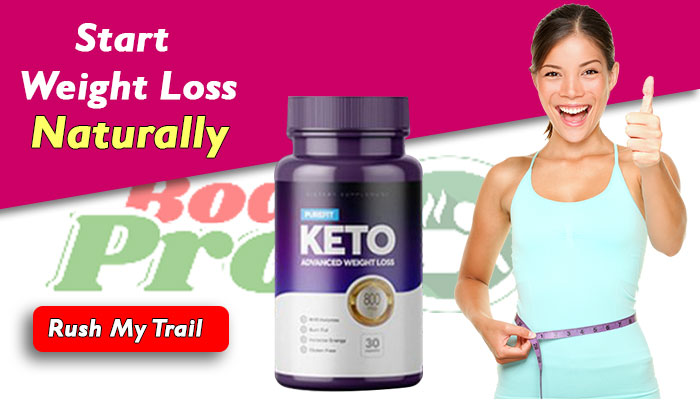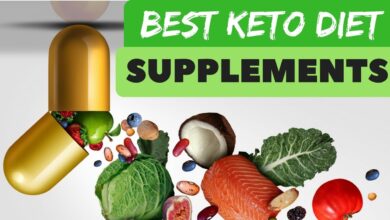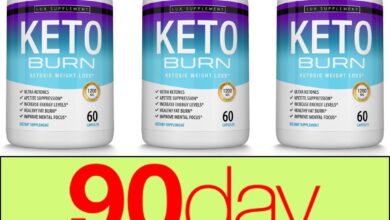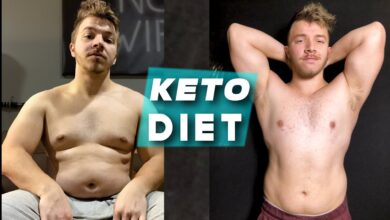
Are you on a mission to burn fat, boost energy and stay sharp? If you’re following a low-carb or keto plan and looking for that extra edge, supplementing smartly could make a difference. In this comprehensive guide we’ll explore seven of the best keto supplements for weight loss and energy, dive into how and why they may work, and share practical tips so you can make informed choices.
Whether you’re in Accra, Lagos, London or New York – the fundamentals apply. Let’s chat about what’s realistic, what’s promising, and what to watch out for.
READ ALSO Seven Inspiring Keto Weight Loss Success Stories That Will Motivate Your Journey
What Exactly Are Keto Supplements? And Why Consider Them?
When you adopt a ketogenic diet — very low carbs, moderate protein, high fat — your body shifts into a state called ketosis, where fat becomes the primary fuel instead of carbs. Many people find this helps with fat-loss and energy stability. But transitioning into ketosis and staying there can challenge your body. That’s where keto-specific supplements step in.
These supplements may include exogenous ketones, MCT oils, electrolytes, protein powders tailored for low-carb, and more. According to recent reviews, such supplements can help with ketone production, support muscle mass, and reduce nutrient gaps that a strict keto diet may cause. (Verywell Health)
But a big caveat: they aren’t magic bullets. They work with a solid diet, not instead of one. They may enhance outcomes, but your core remains: good nutrition + movement + rest.
Why Use Them for Weight Loss and Energy?
When you cut carbs drastically, your body must adapt: fewer glucose spikes, reliance on fat and ketones for fuel. In that process you might experience better energy, clearer thinking, fewer hunger swings. But you may also feel fatigue, sluggishness, or the dreaded “keto flu”.
Supplements fill in gaps: promote fat-burn, support mitochondria, stabilize energy, minimize side-effects. For instance, exogenous ketones can raise blood ketone levels and may suppress appetite. (Medical News Today) MCT oil can provide a fast fat fuel that converts quickly into ketones. (Healthline) For weight loss, part of the equation is increasing the metabolic rate, supporting lean mass, and reducing hunger — which supplements can help, but only when paired with a sound plan.
How to Use This Guide
We’ll go through seven specific supplement types (not brands) that people often use when following a keto lifestyle and want more fat-burn and more energy. For each, we’ll cover:
- What it is and how it works
- Evidence of benefit (and limitations)
- How to choose/what to look for
- Potential side-effects or things to be cautious about
Let’s get into the list.
1. Exogenous Ketones (Ketone Salts / Esters)
Exogenous ketones are basically ketone bodies you take from the outside rather than producing them yourself. These raise blood ketone levels, which may help your body use fat for fuel more readily.
How They Work
When you’re in ketosis your liver produces ketones (like β-hydroxybutyrate, “BHB”) from fatty acids. Exogenous supplements deliver BHB directly or via esters, so your blood ketone levels go up even before your body fully adapts. (Wikipedia) The idea is: higher ketone levels → more fat being used for energy → potentially more fat loss + stable energy.
What the Research Says
Research shows that exogenous ketones can boost ketone levels temporarily. They may reduce hunger and provide an alternative fuel source. (Medical News Today) But the catch: there’s still limited evidence that taking them alone leads to large fat-loss or improved long-term energy without the diet. Some sources say they “may help” but they aren’t a substitute for the diet. (Verywell Health)
How to Use / What to Look For
- Choose products that clearly state how much BHB they provide (in salts or esters).
- Look for independent testing / third-party verification (since supplements are less regulated).
- Use them as a tool, not a crutch: you still need to follow a low-carb, high-fat approach.
- Start with a lower dose to assess tolerance (GI issues can happen).
Caution / Side-Effects
- Some users report gastrointestinal discomfort, electrolyte imbalance, or nausea. (Medical News Today)
- If you have kidney issues, electrolyte instability, or are on medications, you MUST consult a healthcare provider.
- They might raise ketone levels in the short term but don’t automatically guarantee fat-loss or energy boost unless the rest of your plan is solid.
2. Medium‐Chain Triglyceride (MCT) Oil
MCT oil is a type of fat that the body converts more rapidly into ketones compared to typical long-chain fats, so it’s especially popular in keto circles.
How It Works
Unlike most fats, MCTs (found in coconut and palm oil, but also in purified form) are more rapidly absorbed by the liver and converted into ketones. (Healthline) Because of this fast conversion, adding MCT oil can help you raise fat-derived fuel more quickly, potentially helping with energy and supporting fat-burn.
What the Research Says
One review indicates using MCT oil helped ketogenic dieters increase ketone levels quicker and might help reduce appetite / support fullness. (Healthline) That said, it’s still a fat—so you need a caloric and macronutrient framework around it. The benefit is enhanced fat fuel, not “free” fat-loss.
How to Use / What to Look For
- Choose pure MCT oil (ideally 100% MCT, good ratio of C8 and C10 chain lengths).
- Start small (e.g., 1 tsp) to gauge tolerance (some people get digestive upset).
- Use in morning coffee (“bullet-proof coffee” style), smoothies, or drizzle into low-carb meals.
- Balance with rest of your fat intake so you don’t exceed your calorie or fat-goals.
Caution / Side-Effects
- Too much too soon = digestive upset (diarrhea, cramps).
- Since it’s still fat-dense, it adds calories — if you overeat, you might stall weight-loss.
- If you have liver/gallbladder issues, consult your doctor before high doses.
3. Electrolytes & Mineral Support
One often overlooked part of keto: when you reduce carbs significantly, your body flushes more water and you may lose more sodium, potassium, magnesium. That can lead to fatigue, muscle cramps, “keto flu”. Electrolyte support is critical for energy and performance.
How It Works
Carbohydrate restriction reduces insulin, which reduces sodium retention and increases sodium + water excretion. This can affect hydration, muscle function and energy. Supplementing or ensuring adequate intake of key minerals (sodium, potassium, magnesium) helps keep you functioning well. (Verywell Health)
What the Research Says
While electrolyte supplementation isn’t about “fat-loss” directly, it indirectly supports it by maintaining your workout capacity, energy levels, and general well-being — all important when you’re trying to lose weight on keto. One article states: “Electrolytes may get low while on the keto diet … a supplement may help.” (Verywell Health)
How to Use / What to Look For
- Increase sodium intake: e.g., add salt to your food or drink salted broth.
- Ensure adequate potassium: low-carb vegetables, avocados, nuts. If using a supplement, choose one that avoids too high doses without supervision.
- Magnesium: many low-carb eaters are low in magnesium (muscle cramps, sleep issues).
- Choose a product that clearly lists mineral content, avoids unwanted sugar/carbs.
- Combine with plenty of water—hydration matters.
Caution / Side-Effects
- Overdoing sodium or potassium can be risky if you have high blood pressure or kidney issues.
- Some electrolyte supplements contain sweeteners or hidden carbs—check labels.
- Don’t rely solely on “just the minerals” and forget the food side; whole-food sources matter.
4. Keto‐Friendly Protein Powder (Low-Carb, High-Quality Protein)
When losing weight, maintaining lean muscle mass is vital because muscle burns more calories at rest and supports metabolic rate. On keto, you might eat moderate protein, but adding a clean protein supplement helps especially if you’re active.
How It Works
A good protein powder designed for keto will have minimal carbs, high protein, and maybe added fat. Using it supports muscle repair, hunger management, and energy. In the adaptation phase of keto, the body might struggle a little with energy until fully fat-adapted—so clean protein helps bridge that. (Verywell Health)
What the Research Says
One review lists “keto protein powders” as a supplement category for those following a ketogenic diet: “A low-carbohydrate protein powder may help keto dieters maintain muscle mass and get enough protein.” (Verywell Health) While not directly a fat-burner, it’s a key support for weight-loss when paired with the rest of the plan.
How to Use / What to Look For
- Pick a powder with ≤ 2-3 g net carbs per serving (or even zero-carb).
- Prefer sources like whey isolate, micellar casein, or plant-based (if you prefer).
- Check for added sugars or hidden carbs.
- Use post-workout or as a meal replacement when you’re short on time.
- Fit it into your total daily protein goal (e.g., 1.2-2.0g/kg ideal body weight, depending on activity).
Caution / Side-Effects
- Some protein powders contain fillers or sweeteners you may not tolerate.
- Over-consumption of protein can convert to glucose (via gluconeogenesis) which might hinder ketosis if you’re extremely carb-restricted—so balance is key.
- Always pair with hydration and make sure you’re still getting enough fat and low-carb veggies.
5. Omega-3 Fatty Acids (Fish Oil / Krill Oil)
High-fat diets often miss the optimal balance between omega-3 and omega-6 fats. Ensuring you get enough omega-3s supports inflammation control, cardiovascular health, and may support weight-loss outcomes on keto.
How It Works
Omega-3s (EPA and DHA) are anti-inflammatory fats. They help the body manage fat-metabolism, maintain a healthy lipid profile, and support energy production at the cellular level. They don’t directly cause massive weight-loss but they make your body healthier – which means better performance, better fat-loss environment. (Healthline)
What the Research Says
In keto-dieting individuals, supplementation with omega-3s has been associated with improved triglyceride, insulin and inflammatory markers (compared to keto without omega-3 supplementation). (Healthline) So, while not a “keto supplement” in the narrowest sense, it’s a smart inclusion especially when you’re focusing on fat-loss + long-term health.
How to Use / What to Look For
- Choose a fish oil or krill oil that provides at least 500 mg combined EPA + DHA per serving (some go higher).
- Ensure the product is purified (free from heavy metals) and has a freshness guarantee (oxidation of oils decreases benefit).
- Take with meals that contain fat (improves absorption).
- Make sure your intake of vegetable-based omega-6 fats (like from processed oils) is limited—so your ratio of omega-3:omega-6 is favorable.
Caution / Side-Effects
- At high doses, fish oil may affect blood clotting—if you’re on blood thinners, consult your physician.
- Some people may experience “fishy burps” or GI upset—taking with meals or freezing capsules can help.
- Remember: Oil does not replace the full food approach—get fatty fish, low-carb veggies, nuts, seeds.
6. Vitamin D & Multivitamin (Micronutrient Support in Keto)
When you heavily reduce carbs (and many fruits/grains), there’s potential risk for nutrient deficiencies: vitamin D, some B-vitamins, magnesium, etc. Low levels can hamper energy, mood, recovery and ultimately, your fat-loss.
How It Works
Vitamin D influences mood, immune function, bone health, muscle recovery. If your vitamin D is low, you might feel lethargic, moody or recovery from workouts may lag. A multivitamin or targeted vitamin D supplement strengthens the foundation so your “engine” runs smoother.
What the Research Says
A best-practice review listing “vitamin D” as one of the key supplements for keto dieters, because deficiency is common and the diet restricts many sources of certain nutrients. (Healthline) While vitamin D doesn’t directly melt fat, supporting basic health ensures your weight-loss efforts aren’t hampered by fatigue or slowed recovery.
How to Use / What to Look For
- Check your vitamin D level via blood test if possible; supplement accordingly (e.g., 1000-2000 IU/day is common but individual needs vary).
- Use a high-quality multivitamin designed for low-carb or active individuals, focusing on minerals like magnesium, chromium, selenium.
- Take vitamins with meals (fat helps absorption, especially for D, A, E, K).
- Don’t assume “if you’re eating keto you’re automatically meeting all nutrient needs”—pay attention to variety in your food.
Caution / Side-Effects
- Fat-soluble vitamins (A, D, E, K) at high doses can accumulate—avoid mega-dosing without guidance.
- Supplements are not a substitute for whole-foods; nutrient synergy from real food is superior.
- If you have medical conditions (kidney, liver, endocrine), check with your doctor.
7. Greens Powder / Fiber Support (Low-Carb Friendly)
Being on keto often means fewer fibrous carbs (from grains, some fruits), so it’s easy to miss out on certain plant nutrients and fiber. A greens powder (or fiber-support supplement) helps fill that gap, supports digestion, energy and overall metabolic health.
How It Works
Greens powders typically include ingredients like kale, spinach, chlorella, spirulina, wheatgrass — providing vitamins, minerals, phytochemicals and sometimes fiber/probiotics. For someone in low-carb mode, this helps with nutrient density, gut health, and energy production. (Healthline)
What the Research Says
The evidence is less direct (i.e., greens powders aren’t proven “fat-burners”) but their role is in supporting overall metabolic health, which means your body is better primed for weight-loss and energy. One review identified greens powder as a meaningful supplementation for keto dieters. (Healthline)
How to Use / What to Look For
- Choose a greens powder with minimal added sugars or hidden carbs.
- Check that the list of ingredients is transparent, with actual amounts of vitamins/minerals.
- Use as part of a shake or smoothie, or simply mixed with water.
- Continue eating plenty of low-carb vegetables (spinach, broccoli, zucchini, peppers) rather than relying solely on powders.
Caution / Side-Effects
- Some greens powders use sweeteners or sugar alcohols which may trigger digestive upset in sensitive individuals.
- They are supplementary — not a replacement for vegetables and whole foods.
- If you’re on blood-thinning meds or have kidney issues, some greens (high in vitamin K or oxalates) might need oversight.
Putting It All Together: Integrative Keto Supplement Strategy
Now that you know each of the seven categories, let’s paint the bigger picture of how to use them in practice — because the synergy matters more than isolated supplement grabs.
- Start with the foundation
- You must be following a well-structured keto diet (low carb, high healthy fats, moderate protein) and have a calorie or macronutrient target in mind if weight-loss is your goal.
- Ensure you’re moving your body (resistance training or at least some activity) and sleeping enough. Without these, supplements will underperform.
- Prioritize your baseline supports
- Electrolytes/minerals & vitamin D/multivitamin: get these in place early. They support energy, recovery, adaptation.
- Greens/fiber support: ensure you’re still getting sufficient micronutrients and digestion is smooth.
- Add performance- & fat-loss-boost supports
- MCT oil: Use in your morning routine or pre-workout to boost fat-fuel and energy.
- Protein powder: Use after workout or as a shake when you need quick, low-carb protein.
- Omega-3 oil: Make it daily to support metabolic and cardiovascular health so you lose fat smarter.
- Use exogenous ketones strategically
- When you have a “big push” day (workout, hike, busy travel day), you might use ketone salts/esters to get the extra fuel.
- But don’t rely on them every day—monitor how you feel, track your progress (fat-loss, energy, recovery) and adjust.
- Monitor outcomes & adjust
- Track weight/fat-loss (via scale, tape measure, body-composition if available).
- Pay attention to energy during the day, workouts, sleep quality.
- If you stall, revisit: Are carbs sneaking up? Are calories too high? Is protein too low? Are you hydrated?
- Supplements will help smooth things out, but they’re not a substitute for basics.
Common Mistakes & How to Avoid Them
Even with the best supplements, many people make similar errors that undermine results. Let’s highlight some and how you can steer clear.
- Mistake: Thinking supplements alone will fix it.
You’ll never out-supplement a poor diet or sleep routine. If you’re eating high carb, minimal fat, little movement, then even premium keto supplements won’t create major fat loss. - Mistake: Ignoring calorie/macronutrient balance.
On keto you still need a caloric deficit (or at least maintenance) if weight-loss is the goal. Fat is calorie-dense. If you over-eat fat, you can stall. Supplements should fit into your macros. - Mistake: Neglecting electrolytes/hydration.
This is huge especially for people in Africa, US, Europe who may sweat more or live in hotter climates. Low electrolytes = fatigue, cramps, stalled workouts, poor fat-loss. - Mistake: Buying every “keto fad” supplement blindly.
Some products promise “ketosis in 30 minutes” or “melt fat fast” with little backing. Always check for evidence, transparency, third-party testing. As noted earlier, many claims are unproven. (Medical News Today) - Mistake: Underestimating recovery & sleep.
Fat-loss happens when you recover well. Poor sleep = hormone disruption (cortisol, insulin) = stalled fat-loss. No supplement replaces sleep. Focus there.
Special Considerations for Africa, USA & Europe Audiences
While the fundamentals of keto supplementation apply globally, let’s talk about a few nuances for people in Africa (like you in Ghana), the United States and Europe.
- Availability & Cost:
In Ghana or other parts of Africa, some imported supplements may cost more or have limited availability. Look for local trustworthy suppliers, check shipping/taxes, and consider affordability.
In the US and Europe, supplements abound—but that also means you need to be vigilant about quality (regulation is looser than drugs). The note from Medical News Today about exogeneous ketones not being regulated by the FDA is relevant globally. (Medical News Today) - Climate & Hydration:
In warmer African climates, or if you’re active outdoors, your fluid and electrolyte losses may be higher. Make electrolyte support a priority.
In cooler climates (North America, Europe), indoor heating and less sweating might mask fluid loss; still monitor hydration. - Dietary Context & Food Cost:
In Africa you may rely more on staple foods like plantains, yams, maize, which are higher in carbs. When switching to keto, you’ll need to restructure food shopping and choose low-carb alternatives accordingly. Supplements can help but won’t replace the need for accessible, affordable low-carb whole foods.
In the US/Europe, there may be more low-carb packaged foods, convenience items—but also more hidden carbs and processed options. Navigation + supplement choice still matters. - Cultural & Lifestyle Factors:
Social meals, family gatherings, food traditions vary. Whether you’re in Accra, London or Chicago, you’ll face situations where high-carb foods abound. Having a supplement strategy (e.g., MCT oil in a coffee, greens powder in a shake) helps you stay on track while enjoying social life. - Quality & Authenticity:
Across all regions, sourcing matters. Abundant product availability doesn’t always equate to high-quality manufacturing. Look for certifications (e.g., GMP, NSF). For imports, check customs/import regulations. Resist bargain products that don’t disclose full ingredient lists.
How to Evaluate if a Keto Supplement Is Worth It
Let’s give you a quick checklist you can run through when vetting any keto support supplement (weight-loss/energy angle):
- Does the label list exact amounts of the active ingredient (e.g., BHB salts, C8/C10 MCT, EPA/DHA) rather than vague “proprietary blend”?
- Is there third-party testing or proof of manufacturing quality (e.g., non-GMO, heavy metal testing, freshness for oils)?
- Are the carbs/sugars hidden or minimal? (Important on keto)
- How does the price compare to similar products? Is it overly expensive without justification?
- Are there clinical studies backing the ingredient (even if small) and are the claims realistic?
- What do user reviews say (especially in your region/country)? Are there reports of side-effects?
- Does the supplement align with your goals (fat-loss and energy) and fit within your budget/diet?
- Have you consulted (or plan to consult) with a healthcare provider if you have any medical conditions or are taking medications?
Practical Daily Routine Example
Here’s how a day might look if you’re combining diet + movement + smart supplementation for keto weight-loss and energy.
Morning
- Cup of black coffee or tea (if you like)
- Take electrolytes / mineral drink (sodium + potassium + magnesium)
- Use 1 tsp MCT oil in coffee or smoothie
- Take fish oil (with breakfast) + vitamin D/multivitamin
Mid-morning
- Low-carb snack if needed (e.g., handful of nuts, cheese cubes)
- Greens powder shake if you’re in busy mode and need nutrient boost
Lunch
- High-fat salad or grilled protein with low-carb veggies, avocado, olive oil
- Ensure good sodium intake (salt your food if needed)
- Hydrate well (at least 2-3 L water if warm climate/activity)
Afternoon / Pre-workout
- If you’re going for a workout: use protein powder (low-carb) or a ketogenic-friendly snack
- Optional: exogenous ketone supplement if you have a heavy workout or endurance session
Evening / Dinner
- Protein (fish, chicken, beef) + low-carb veggies + healthy fats (olive oil, butter, coconut oil)
- Take fish/krill oil if second dose recommended
- Ensure you have no hidden carbs (watch sauces, dressings)
- Wind down: lower carbs further if your target is fat-loss; avoid late high–glycemic foods
Bedtime
- Ensure magnesium intake if you struggle with sleep or cramps
- Sleep 7-9 hours (vital)
Weekly
- Track your weight/fat-loss progress (once a week, same day/time)
- Review energy levels, recovery from workouts, mood
- Adjust: if weight-loss stalled, check calories/macros, sleep, stress, hydration first before changing supplement dose
What to Expect & How Long Before You See Results?
Expectations matter. Supplements can help, but results depend on multiple variables (diet, activity, sleep, genetics). Here’s a realistic outlook:
- In the first 2–4 weeks: You may notice improved stability in energy, fewer hunger swings, maybe some initial fat-loss (especially if you’re new to keto).
- By week 4–8: If you’re consistent, you might see more visible fat-loss (waist, hips) and stronger workouts. The supplements (MCT oil, protein powder, fish oil, electrolyte support) will help you maintain performance.
- After 12 weeks+: Fat-loss will often slow — that’s normal. At this point the supplements help you sustain lean-mass, maintain energy, and continue losing body-fat slowly or hold your gains.
- Long-term: Your body adapts. Supplements shift from “boost mode” to “maintenance mode”. At that stage, lower dose, strategic use (e.g., exogenous ketones only on high-load days) may be more cost-efficient.
Key point: if you see no improvement after 4–8 weeks (fat-loss stagnation, low energy, mood down), revisit diet/activity/sleep first, not just buy more supplements.
Safety and When to See a Doctor
While many of these supplements are generally safe for healthy individuals, there are situations where caution is crucial:
- If you have kidney or liver disease, electrolyte imbalance, or cardiovascular conditions — consult your doctor before using high-dose MCT oil, exogenous ketones or high sodium electrolyte products.
- If you’re on medication (especially blood-thinners, blood-pressure meds, thyroid meds) — fish oil and mineral supplements can interact.
- If you’re pregnant, breastfeeding, or planning pregnancy — evidence in these groups is less robust; consult your healthcare provider.
- Always monitor for side-effects: persistent GI upset, irregular heartbeat, extreme fatigue, mood changes, or signs of nutrient deficiency (hair loss, skin issues, etc.).
- Supplements are not regulated like prescription drugs. As noted by reliable sources, exogenous ketone supplements in particular are not tested thoroughly by the FDA for safety or efficacy. (Medical News Today)
- Use brands you trust, keep receipts, and stop use if you feel adverse effects.
Cost vs Benefit – Is It Worth It?
Let’s be real: supplements cost money. In Ghana or other parts of Africa the cost may be higher because of import fees; in the US/Europe price competition is heavy but so is marketing hype. You should evaluate: am I getting a benefit that justifies the spend?
- Benefit side: If a supplement helps you stay in ketosis longer, maintain energy, improve workout performance, protect muscle mass, and accelerate fat-loss by even a small margin — that benefit may justify cost.
- Cost side: If your diet is sloppy, you’re not exercising, sleep is poor — then even the best supplement won’t save you, so it may be wasteful.
- Smart strategy: Start with the cheaper foundational supports (electrolytes, mineral/multivitamin, fish oil) before investing heavily in higher-cost supplements like premium exogenous ketones or fancy “fat-burner” blends.
- Measure return: Track metrics (energy levels, workout performance, fat-loss progress) and ask yourself: is this supplement making a noticeable difference in 4–8 weeks? If not, reconsider.
Recap: The 7 Best Keto Supplements for Weight Loss & Energy
- Exogenous Ketones – raise ketone levels, support fat fuel & energy (use strategically).
- MCT Oil – fast converting fat-fuel, supports ketosis and energy.
- Electrolytes & Mineral Support – key to hydration, muscle function, energy, especially while adapting to keto.
- Keto-Friendly Protein Powder – supports muscle mass, recovery and helps manage appetite.
- Omega-3 Fatty Acids – supports metabolic health, inflammation control, indirectly enhances fat-loss environment.
- Vitamin D & Multivitamin – foundation health, energy and support for low-carb dietary gaps.
- Greens Powder / Fiber Support – ensures micronutrient and fiber intake in a low-carb context.
Final Thoughts Before You Dive In
Here’s what I suggest: if you’re serious about fat-loss and energy on keto, pick 2-3 of the above supplements to start with (based on your biggest needs). Don’t overload with all 7 right away. Get foundational supports working well first (electrolytes, mineral/multivitamin, omega-3). Then layer in performance supports (MCT oil, protein powder). Use exogenous ketones more sparingly and strategically. Monitor your progress.
Think of supplementation like the engine tune-up of a car. Your diet, movement, sleep are the engine itself. You wouldn’t install performance parts on a poorly built engine and expect top results. Same here. Once your fundamentals are solid, then the supplements help you shift into a higher gear.
Stay patient. Fat-loss and energy improvement on keto is a journey, not a sprint. Keeping your diet consistent, staying hydrated, training smart and sleeping well will get you most of the way. These seven supplements are the supporting cast — they play their part, but they don’t replace the main show.
Go into this with realistic expectations, stay consistent, adjust as you go, and you’ll find what works for your body. You’ve got this.
Conclusion
Embarking on a keto-style weight-loss and energy optimisation plan is exciting but also requires careful choices. The right supplements — when used wisely — can boost your fat-burn, sharpen your energy and support your metabolic health. From exogenous ketones and MCT oil to electrolytes, quality protein, omega-3s, vitamins and greens powders, the seven categories we covered offer a comprehensive stack for serious achievers.
But remember: these are supports, not shortcuts. Make sure your diet is on point, your movement consistent, your sleep strong. Choose supplements with care, monitor how you feel, track your progress, and make adjustments. If you do that, you’ll position yourself for success — whether you’re in Ghana, the US or Europe.
Here’s to powerful fat-loss, sustained energy, and feeling amazing in your body.
READ ALSO Top 10 Keto Weight Loss Transformations You Must See – Dramatic Success Stories & Lessons
Frequently Asked Questions (FAQs)
- Q: Do keto supplements guarantee weight loss?
A: No- they don’t guarantee weight loss on their own. Supplements support your efforts but you still need a calorie/macro plan, consistent food choices, activity and adequate rest. Supplements boost, they don’t replace. - Q: When is the best time to take keto supplements like MCT oil or exogenous ketones?
A: It depends on the supplement. MCT oil often works well in the morning (e.g., with coffee) or before workouts. Exogenous ketones might be used on days when you need extra energy or training. Electrolytes/minerals can be throughout the day. The key is consistency and timing that fits your schedule. - Q: Are there side-effects I should watch for when using keto supplements?
A: Yes. Possible side-effects include gastrointestinal upset (from MCT oil or ketones), electrolyte imbalance (especially if hydration is poor), nutrient overdose (vitamins/minerals), or interactions with medications. Always start low, monitor how you feel, and consult a healthcare provider if you have health conditions. - Q: How long will it take until I see results from using these supplements?
A: Typically you may feel energy improvements within 1-2 weeks, visible fat-loss within 4-8 weeks, and deeper changes by 12 weeks or more. But individual response varies widely. Track progress, stay patient and adjust your plan as needed. - Q: Can I use all seven supplements at once? Or should I pick only a few?
A: You can use many, but it’s smarter to phase them in. Start with the foundational supports (electrolytes, vitamin D/multivitamin, omega-3). Once those are stable and working, layer in MCT oil and protein powder. Use exogenous ketones strategically rather than daily for cost-effectiveness and to assess real impact. Always ensure you’re monitoring progress so you know which supplements are truly adding value.




